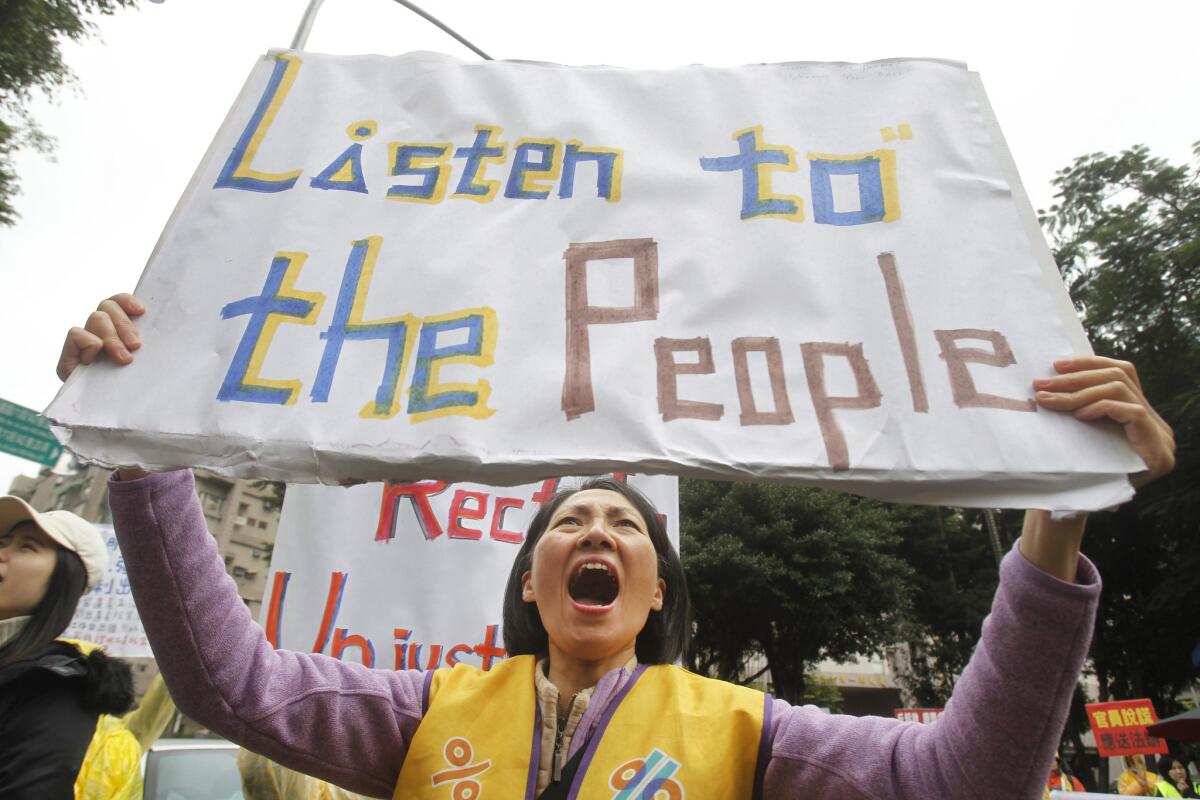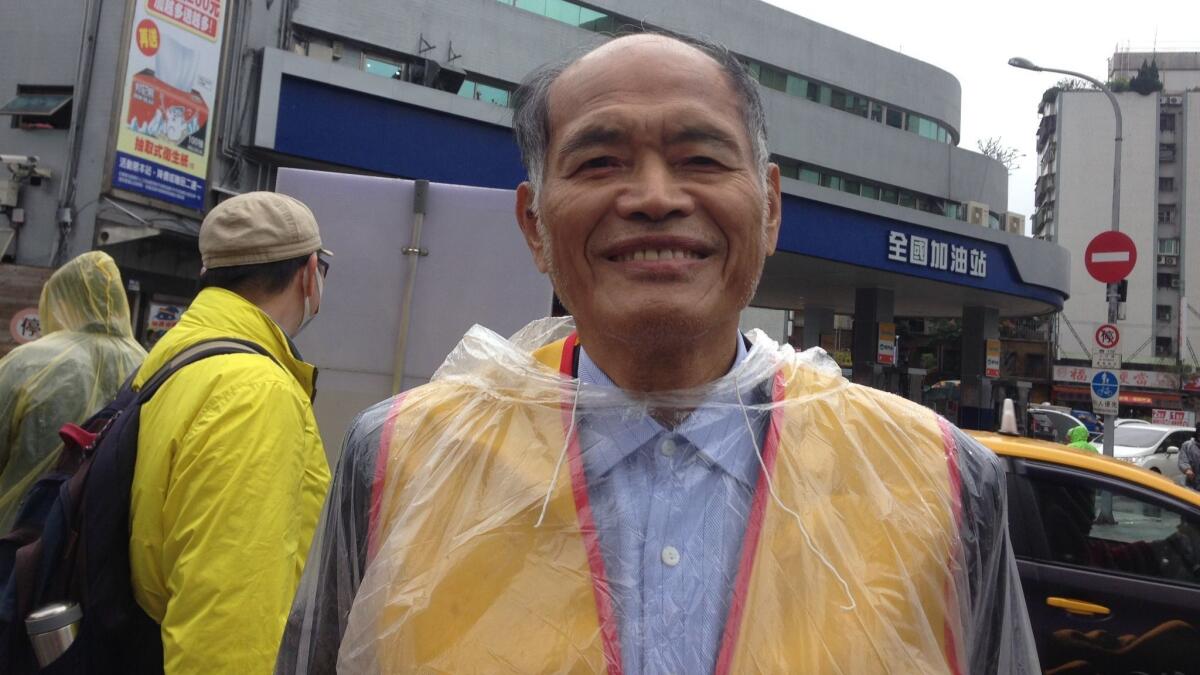France’s ‘yellow vest’ movement hopscotches to Taiwan. ‘We’re pleading with the government’

Chien Yung-sung was alarmed to discover some 15 years ago that he owed back taxes equal to about $2.27 million. The 71-year-old Taipei man, who is in the financial technology business, has since closed the company targeted by tax authorities, but he’s still fighting the bill.
“It was a bill sent in error. But when we went to court, they just listened to the tax officials,” Chien said. “They don’t follow their own rules.”
Chien and thousands of others donned yellow vests on a rainy Thursday morning to protest outside the Ministry of Finance, the architect of Taiwan’s tax system, after feeling inspired by the yellow vest movement in France. Their campaign is the first major one in Asia inspired by the French movement, which was provoked by an increase in fuel taxes.
About 20,000 Taiwanese participated in demonstrations last week outside the presidential office, and about half that number protested in the capital of Taipei on Saturday, according to organizers and local media reports. The protests have all been peaceful.
“This problem is about to explode, so we’re wearing the yellow vests to go out and see if the government is willing to change,” said Wang Chih-lan, a media liaison with a Taipei-based advocacy group, Tax & Legal Reform League, which organized the protest.
With their yellow vests worn under clear plastic raincoats, the Taiwanese protesters yelled slogans demanding that President Tsai Ing-wen’s government overhaul the income tax system. Some waved banners calling current policies illegal and blared airhorns outside the ministry offices, which were guarded by police.

Many at Thursday’s demonstration complained of receiving tax bills in error. Appeals against taxes cost too much, some argued. Tax rates deter young people from starting companies, discourage foreign investors from doing business in Taiwan and hurt entry-level workers who already struggle with low wages, they said.
Wages are a particularly sore point for Taiwan. The minimum wage will reach $750 per month in January, and wages now average $1,364 per month, often too little for workers in Taipei to afford housing unless they live with their parents or friends.
“They play dead and don’t come out and say what the problems are,” said protester Lily Chen, 48, pointing to the finance ministry high-rise. Her qigong group (similar to tai chi) has been fighting back taxes for 22 years. “Taiwan’s tax rules are too complex,” she said. “There’s no good way to appeal a case. So we’re pleading with the government.”
The finance ministry has heard a lot of the protest complaints before and rebutted some in statements on its website, a ministry official said Wednesday. “Their demands are actually old and spread a lot of erroneous information,” she said. She was not authorized to give her name.
Taxes cannot make taxpayers “poor,” contrary to some protest voices, because Taiwanese are allowed to pay in installments, ministry section chief Tsai Meng-chu said.
Taiwanese who earn less than $78,500 a year pay no more than 20% in taxes, according to data compiled by KPMG. The professional services firm ranks Taiwan’s taxes 33rd highest in the world out of 135 countries and regions. The United States ranks 39th.
In late November and early December, tens of thousands of marchers in France clashed with police over taxes and wages. Some demonstrators lighted fires. Ten deaths have been blamed on the protests.
French President Emmanuel Macron eventually scrapped a fuel tax hike and pledged to increase the minimum wage.
The French movement has spread as well to Belgium and the Netherlands. Belgian protesters destroyed several police vehicles as they called for the prime minister to quit over taxes, wages and food prices.
Jennings is a special correspondent.
More to Read
Sign up for Essential California
The most important California stories and recommendations in your inbox every morning.
You may occasionally receive promotional content from the Los Angeles Times.










